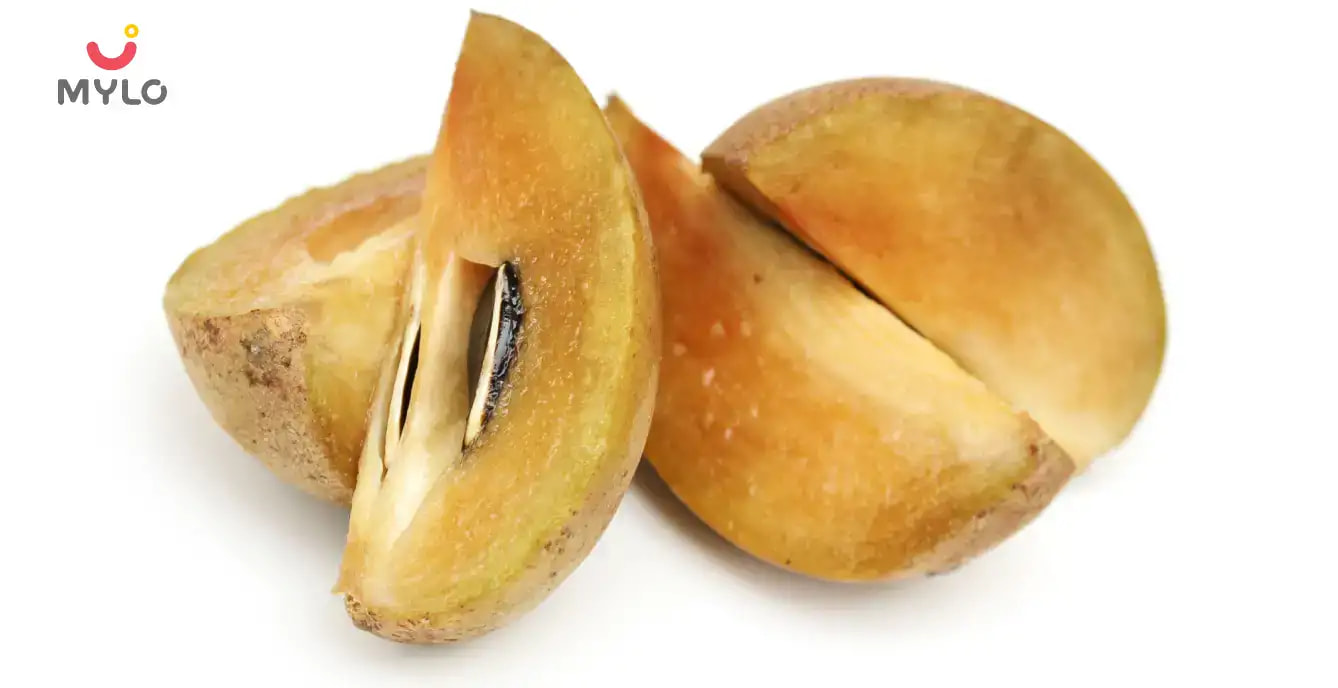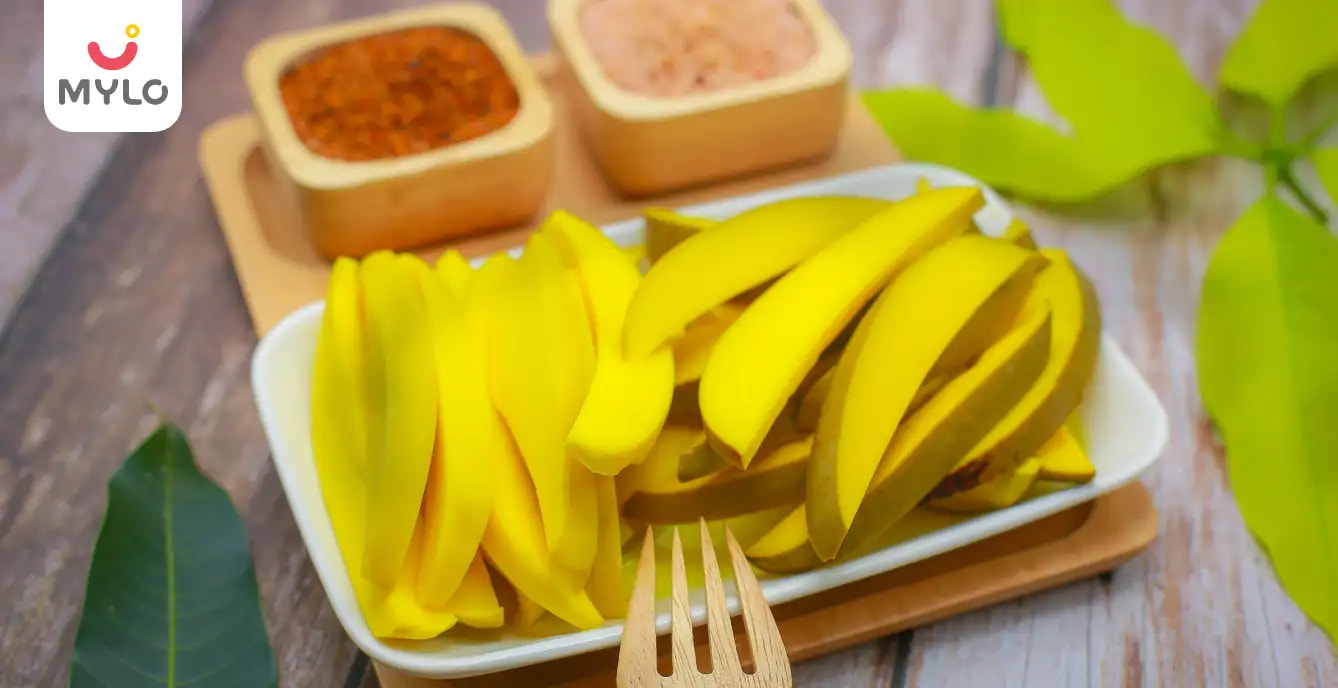Home

Diet & Nutrition

Avocado Benefits for Pregnancy: Nourishing Mother and Baby with Nature's Superfood
In this Article

Diet & Nutrition
Avocado Benefits for Pregnancy: Nourishing Mother and Baby with Nature's Superfood
Updated on 3 November 2023


Medically Reviewed by
Savita
Diabetes, Weight Loss, Thyroid, PCOS - Masters in Food & Nutrition
View Profile

As an expecting mother, you tend to hear numerous food and diet recommendations from almost everyone you know. One such recommendation that you may have come across might be about the numerous avocado benefits for pregnancy. There's no denying that avocado is packed with essential vitamins, minerals, and healthy fats but is it safe to consume during pregnancy.
In this article, we will understand if there are any side effects of avocado during pregnancy, how eat avocado during pregnancy and explore the multiple benefits this fruit has to offer to expecting mothers and their babies.
Is Avocado Good for Pregnancy?
Yes, avocados are good for pregnancy. They are a convenient and nutritious food choice during pregnancy due to their rich content of fiber, healthy fats, vitamins, minerals, and beneficial plant compounds. The monounsaturated fats in avocados can improve heart health, regulate blood sugar levels, and help with satiety. They are also a concentrated source of important nutrients like folate, magnesium, potassium, and antioxidants, which are necessary for fetal development and blood pressure regulation.
Avocado Benefits for Pregnancy
Now, lets learn in depth about the benefits of avocado during pregnancy:
1. High in fiber
Avocados are an excellent source of high insoluble fiber. They should be consumed with ample amounts of water to promote bowel health. The insoluble fiber adheres to the water rather than dissolving in it and makes the digestive process smooth. Since most women suffer from constipation during pregnancy, this fruit can be a great addition to their diet.
2. Rich in nutrients
Avocados are a power pack of folate, magnesium, and vitamin C. Mere 100 grams of avocado can suffice the folate needs of the mother and fetus. One whole avocado has around 240 calories, 13 grams of carbohydrates, 3 grams of proteins, 22 grams of fat, and around 10 grams of fiber. Avocados contain no cholesterol, which makes them a healthy choice for weight management also.
3. Healthy fats
Monounsaturated fats or healthy fats are beneficial for the fetus and mother. One full avocado has around 15 grams of monounsaturated fats, 4 grams of polyunsaturated fats and 3 grams of saturated fats, which makes it an ideal choice for providing the healthiest fats. Fats are required for the fetus to provide warmth and body built.
4. Supports healthy blood pressure levels
Avocado contains oleic acid, which works wonders to control high blood pressure. By regulating blood pressure, avocados also help to reduce the risk of preeclampsia, a condition characterized by high blood pressure during pregnancy.
5. Rich in powerful antioxidants
Cellular health largely depends on the number of antioxidants in the blood. Antioxidants prevent cell damage, fight against cell damage and promote new cell rejuvenation. Avocados contain lutein, a powerful antioxidant for metabolism and brain health. Apart from lutein, there is zeaxanthin, beta-carotene, and vitamin C.
6. Helps control cravings
As avocados are a rich source of good fats, these fats can help in controlling food cravings and fulfilling satiety. They give a feeling of fullness and can be opted for instead of junk fillers.
7. Regulates blood sugar
The healthy fats and fiber in avocados help regulate blood sugar levels, reducing the risk of gestational diabetes. They provide sustained energy and help prevent blood sugar spikes.
8. Prevents morning sickness
Morning sickness and nausea during pregnancy are draining. Avocados control nausea and their nutrients keep you energized and hydrated. Start your day with avocado and break the intake into smaller portions, to keep nausea symptoms at bay.
9. Treats anemia
Iron is the most essential micronutrient during motherhood. Iron has to be supplied to the growing fetus and mother. Avocados contain iron in abundance which can suffice the daily requirements of the mother and fetus and prevent anemia during pregnancy.
10. Improves Leg cramps
Leg cramps are very common during pregnancy. Avocados are a good source of magnesium, which supports bone development, regulates blood sugar levels, and aids in energy production. It can also help reduce leg cramps during pregnancy.
11. Boosts fetal development
Avocados are packed with folate, a crucial nutrient for fetal development, especially during the early stages of pregnancy. Folate helps prevent neural tube defects and supports the baby's brain and spinal cord development.
12. Nutrient Absorption
Avocados enhance the absorption of fat-soluble vitamins (A, D, E, and K) and other nutrients. Adding avocados to meals can maximize the benefits of other nutritious foods consumed during pregnancy.
How to Eat Avocado During Pregnancy?
There are several delicious and nutritious ways to incorporate avocados into your diet:
1. Avocado on toast
Spread mashed avocado on whole grain toast for a satisfying and nutrient-rich breakfast or snack.
2. Avocado smoothie
Blend ripe avocados with your favorite fruits, such as bananas or berries, along with some yogurt or milk for a creamy and nutritious smoothie.
3. Avocado salad
Toss diced avocado with mixed greens, cherry tomatoes, cucumbers, and a drizzle of olive oil and lemon juice for a refreshing and healthy salad.
4. Stuffed avocado
Cut an avocado in half, remove the pit, and fill the hollow with a combination of ingredients like quinoa, black beans, corn, and salsa for a satisfying and protein-packed meal.
These options provide a variety of flavors and textures while ensuring you reap the nutritional benefits of avocado in pregnancy.
You may also like: The Daily Balanced Diet of a Pregnant Woman: What to Eat and Avoid
Are There Any Side Effects of Avocado During Pregnancy?
While there are a plethora of benefits of eating avocado in pregnancy, there can be certain side effects as well that the expecting mother should be aware of. These include:
1. Weight gain
Avocados are high in calories, so eating too many of them can lead to weight gain. It is important to consume them in moderation to maintain a healthy weight during pregnancy.
2. Stomach discomfort
Avocado contains components that may cause stomach discomfort such as bloating or flatulence. Some pregnant women may experience digestive issues after consuming avocado.
3. Allergic reactions
Some individuals may have allergies or latex intolerance to avocado. It's important to be cautious if you have a history of allergies and consult with a healthcare professional before consuming avocado in pregnancy.
4. Lowering HDL cholesterol
Avocado can lower HDL cholesterol, which is the good type of cholesterol. Although this may not necessarily be harmful during pregnancy, it's important to maintain a balanced diet and monitor cholesterol levels with the guidance of a healthcare professional.
You may also like: Strawberry in Pregnancy: Why Should This Fruit Be on Your Pregnancy Platter?
Final Thoughts
Avocado benefits for pregnancy range from promoting brain development and immune function to aiding digestion and blood clotting. Their remarkable nutritional profile, packed with fiber, healthy fats, vitamins, minerals, and beneficial plant compounds provide a holistic approach to nourishing the body during this crucial time. However, it is essential to remember that every pregnancy is unique, and consulting with a healthcare professional for personalized dietary advice is crucial.
References
1. Comerford, K., Ayoob, K., Murray, R., & Atkinson, S. (2016). The Role of Avocados in Maternal Diets during the Periconceptional Period, Pregnancy, and Lactation. Nutrients, 8(5), 313.
2. Melo, M. F. F. T. de, Pereira, D. E., Moura, R. de L., Silva, E. B. da, Melo, F. A. L. T. de, Dias, C. de C. Q., Silva, M. da C. A., Oliveira, M. E. G. de, Viera, V. B., Pintado, M. M. E., Santos, S. G. dos, & Soares, J. K. B. (2019). Maternal Supplementation With Avocado (Persea americana Mill.) Pulp and Oil Alters Reflex Maturation, Physical Development, and Offspring Memory in Rats. Frontiers in Neuroscience,




Medically Reviewed by
Savita
Diabetes, Weight Loss, Thyroid, PCOS - Masters in Food & Nutrition
View Profile


Written by
Priyanka Verma
Priyanka is an experienced editor & content writer with great attention to detail. Mother to an 11-year-old, she's a ski
Read MoreGet baby's diet chart, and growth tips

Related Articles
Related Questions
Influenza and boostrix injection kisiko laga hai kya 8 month pregnancy me and q lagta hai ye plz reply me

Hai.... My last period was in feb 24. I tested in 40 th day morning 3:30 .. That is faint line .. I conculed mylo thz app also.... And I asked tha dr wait for 3 to 5 days ... Im also waiting ... Then I test today 4:15 test is sooooo faint ... And I feel in ma body no pregnancy symptoms. What can I do .

Baby kicks KB Marta hai Plz tell mi

PCOD kya hota hai

How to detect pcos

Related Topics
RECENTLY PUBLISHED ARTICLES
our most recent articles

Diet & Nutrition
গর্ভাবস্থায় আলুবোখরা: উপকারিতা ও ঝুঁকি | Prunes During Pregnancy: Benefits & Risks in Bengali

Diet & Nutrition
গর্ভাবস্থায় হিং | ঝুঁকি, সুবিধা এবং অন্যান্য চিকিৎসা | Hing During Pregnancy | Risks, Benefits & Other Treatments in Bengali

Women Specific Issues
স্তনের উপর সাদা দাগ: লক্ষণ, কারণ এবং চিকিৎসা | White Spots on Nipple: Causes, Symptoms, and Treatments in Bengali

Diet & Nutrition
গর্ভাবস্থায় পোহা: উপকারিতা, ধরণ এবং রেসিপি | Poha During Pregnancy: Benefits, Types & Recipes in Bengali

Diet & Nutrition
গর্ভাবস্থায় মাছ: উপকারিতা এবং ঝুঁকি | Fish In Pregnancy: Benefits and Risks in Bengali

Diet & Nutrition
গর্ভাবস্থায় রেড ওয়াইন: পার্শ্ব প্রতিক্রিয়া এবং নির্দেশিকা | Red Wine During Pregnancy: Side Effects & Guidelines in Bengali
- ইনার থাই চ্যাফিং: কারণ, উপসর্গ এবং চিকিৎসা | Inner Thigh Chafing: Causes, Symptoms & Treatment in Bengali
- গর্ভাবস্থায় ব্রাউন রাইস: উপকারিতা ও সতর্কতা | Brown Rice During Pregnancy: Benefits & Precautions in Bengali
- Velamentous Cord Insertion - Precautions, Results & Safety
- Unlock the Secret to Flawless Skin: 7 Must-Have Qualities in a Face Serum
- Unlock the Secret to Radiant Skin: How Vitamin C Serum Can Transform Your Complexion
- Gender No Bar: 10 Reasons Why Everyone Needs a Body Lotion
- Unlock the Secret to Radiant Skin How to Choose the Perfect Body Lotion for Your Skin Type
- Top 10 Reasons to Apply a Body Lotion After Every Bath
- Communication in Toddlers: Milestones & Activities
- How to Improve Vocabulary for Toddlers?
- A Comprehensive Guide to Understanding Placenta Accreta
- Vulvovaginitis in Toddlers Causes, Symptoms and Treatment
- A Comprehensive Guide to Understanding Cerebral Palsy in Children
- Bitter Taste in Mouth During Pregnancy: Understanding the Causes and Remedies


AWARDS AND RECOGNITION

Mylo wins Forbes D2C Disruptor award

Mylo wins The Economic Times Promising Brands 2022
AS SEEN IN

- Mylo Care: Effective and science-backed personal care and wellness solutions for a joyful you.
- Mylo Baby: Science-backed, gentle and effective personal care & hygiene range for your little one.
- Mylo Community: Trusted and empathetic community of 10mn+ parents and experts.
Product Categories
baby carrier | baby soap | baby wipes | stretch marks cream | baby cream | baby shampoo | baby massage oil | baby hair oil | stretch marks oil | baby body wash | baby powder | baby lotion | diaper rash cream | newborn diapers | teether | baby kajal | baby diapers | cloth diapers |







